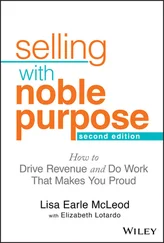Grant Allen - Hilda Wade, a Woman with Tenacity of Purpose
Здесь есть возможность читать онлайн «Grant Allen - Hilda Wade, a Woman with Tenacity of Purpose» — ознакомительный отрывок электронной книги совершенно бесплатно, а после прочтения отрывка купить полную версию. В некоторых случаях можно слушать аудио, скачать через торрент в формате fb2 и присутствует краткое содержание. Жанр: foreign_prose, literature_19, foreign_antique, на английском языке. Описание произведения, (предисловие) а так же отзывы посетителей доступны на портале библиотеки ЛибКат.
- Название:Hilda Wade, a Woman with Tenacity of Purpose
- Автор:
- Жанр:
- Год:неизвестен
- ISBN:нет данных
- Рейтинг книги:3 / 5. Голосов: 1
-
Избранное:Добавить в избранное
- Отзывы:
-
Ваша оценка:
- 60
- 1
- 2
- 3
- 4
- 5
Hilda Wade, a Woman with Tenacity of Purpose: краткое содержание, описание и аннотация
Предлагаем к чтению аннотацию, описание, краткое содержание или предисловие (зависит от того, что написал сам автор книги «Hilda Wade, a Woman with Tenacity of Purpose»). Если вы не нашли необходимую информацию о книге — напишите в комментариях, мы постараемся отыскать её.
Hilda Wade, a Woman with Tenacity of Purpose — читать онлайн ознакомительный отрывок
Ниже представлен текст книги, разбитый по страницам. Система сохранения места последней прочитанной страницы, позволяет с удобством читать онлайн бесплатно книгу «Hilda Wade, a Woman with Tenacity of Purpose», без необходимости каждый раз заново искать на чём Вы остановились. Поставьте закладку, и сможете в любой момент перейти на страницу, на которой закончили чтение.
Интервал:
Закладка:
He lay long asleep. Hilda and I watched him.
After he had lain for some minutes senseless, like a log, on the couch where we had placed him, Hilda stooped over him quietly and lifted up the ends of the grizzled moustache. Then she pointed one accusing finger at his lips. “I told you so,” she murmured, with a note of demonstration.
“There is certainly something rather stern, or even ruthless, about the set of the face and the firm ending of the lips,” I admitted, reluctantly.
“That is why God gave men moustaches,” she mused, in a low voice; “to hide the cruel corners of their mouths.”
“Not ALWAYS cruel,” I cried.
“Sometimes cruel, sometimes cunning, sometimes sensuous; but nine times out of ten best masked by moustaches.”
“You have a bad opinion of our sex!” I exclaimed.
“Providence knew best,” she answered. “IT gave you moustaches. That was in order that we women might be spared from always seeing you as you are. Besides, I said ‘Nine times out of ten.’ There are exceptions—SUCH exceptions!”
On second thought, I did not feel sure that I could quarrel with her estimate.
The experiment was that time once more successful. Sebastian woke up from the comatose state after eight hours, not quite as fresh as Hilda Wade, perhaps, but still tolerably alive; less alert, however, and complaining of dull headache. He was not hungry. Hilda Wade shook her head at that. “It will be of use only in a very few cases,” she said to me, regretfully; “and those few will need to be carefully picked by an acute observer. I see resistance to the coma is, even more than I thought, a matter of temperament. Why, so impassioned a man as the Professor himself cannot entirely recover. With more sluggish temperaments, we shall have deeper difficulty.”
“Would you call him impassioned?” I asked. “Most people think him so cold and stern.”
She shook her head. “He is a snow-capped volcano!” she answered. “The fires of his life burn bright below. The exterior alone is cold and placid.”
However, starting from that time, Sebastian began a course of experiments on patients, giving infinitesimal doses at first, and venturing slowly on somewhat larger quantities. But only in his own case and Hilda’s could the result be called quite satisfactory. One dull and heavy, drink-sodden navvy, to whom he administered no more than one-tenth of a grain, was drowsy for a week, and listless long after; while a fat washerwoman from West Ham, who took only two-tenths, fell so fast asleep, and snored so stertorously, that we feared she was going to doze off into eternity, after the fashion of the rabbits. Mothers of large families, we noted, stood the drug very ill; on pale young girls of the consumptive tendency its effect was not marked; but only a patient here and there, of exceptionally imaginative and vivid temperament, seemed able to endure it. Sebastian was discouraged. He saw the anaesthetic was not destined to fulfil his first enthusiastic humanitarian expectations. One day, while the investigation was just at this stage, a case was admitted into the observation-cots in which Hilda Wade took a particular interest. The patient was a young girl named Isabel Huntley—tall, dark, and slender, a markedly quick and imaginative type, with large black eyes which clearly bespoke a passionate nature. Though distinctly hysterical, she was pretty and pleasing. Her rich dark hair was as copious as it was beautiful. She held herself erect and had a finely poised head. From the first moment she arrived, I could see nurse Wade was strongly drawn towards her. Their souls sympathised. Number Fourteen—that is our impersonal way of describing CASES—was constantly on Hilda’s lips. “I like the girl,” she said once. “She is a lady in fibre.”
“And a tobacco-trimmer by trade,” Sebastian added, sarcastically.
As usual, Hilda’s was the truer description. It went deeper.
Number Fourteen’s ailment was a rare and peculiar one, into which I need not enter here with professional precision. (I have described the case fully for my brother practitioners in my paper in the fourth volume of Sebastian’s Medical Miscellanies.) It will be enough for my present purpose to say, in brief, that the lesion consisted of an internal growth which is always dangerous and most often fatal, but which nevertheless is of such a character that, if it be once happily eradicated by supremely good surgery, it never tends to recur, and leaves the patient as strong and well as ever. Sebastian was, of course, delighted with the splendid opportunity thus afforded him. “It is a beautiful case!” he cried, with professional enthusiasm. “Beautiful! Beautiful! I never saw one so deadly or so malignant before. We are indeed in luck’s way. Only a miracle can save her life. Cumberledge, we must proceed to perform the miracle.”
Sebastian loved such cases. They formed his ideal. He did not greatly admire the artificial prolongation of diseased and unwholesome lives, which could never be of much use to their owners or anyone else; but when a chance occurred for restoring to perfect health a valuable existence which might otherwise be extinguished before its time, he positively revelled in his beneficent calling. “What nobler object can a man propose to himself,” he used to say, “than to raise good men and true from the dead, as it were, and return them whole and sound to the family that depends upon them? Why, I had fifty times rather cure an honest coal-heaver of a wound in his leg than give ten years more lease of life to a gouty lord, diseased from top to toe, who expects to find a month of Carlsbad or Homburg once every year make up for eleven months of over-eating, over-drinking, vulgar debauchery, and under-thinking.” He had no sympathy with men who lived the lives of swine: his heart was with the workers.
Of course, Hilda Wade soon suggested that, as an operation was absolutely necessary, Number Fourteen would be a splendid subject on whom to test once more the effects of lethodyne. Sebastian, with his head on one side, surveying the patient, promptly coincided. “Nervous diathesis,” he observed. “Very vivid fancy. Twitches her hands the right way. Quick pulse, rapid perceptions, no meaningless unrest, but deep vitality. I don’t doubt she’ll stand it.”
We explained to Number Fourteen the gravity of the case, and also the tentative character of the operation under lethodyne. At first, she shrank from taking it. “No, no!” she said; “let me die quietly.” But Hilda, like the Angel of Mercy that she was, whispered in the girl’s ear: “IF it succeeds, you will get quite well, and—you can marry Arthur.”
The patient’s dark face flushed crimson.
“Ah! Arthur,” she cried. “Dear Arthur! I can bear anything you choose to do to me—for Arthur!”
“How soon you find these things out!” I cried to Hilda, a few minutes later. “A mere man would never have thought of that. And who is Arthur?”
“A sailor—on a ship that trades with the South Seas. I hope he is worthy of her. Fretting over Arthur’s absence has aggravated the case. He is homeward-bound now. She is worrying herself to death for fear she should not live to say good-bye to him.”
“She WILL live to marry him,” I answered, with confidence like her own, “if YOU say she can stand it.”
“The lethodyne—oh, yes; THAT’S all right. But the operation itself is so extremely dangerous; though Dr. Sebastian says he has called in the best surgeon in London for all such cases. They are rare, he tells me—and Nielsen has performed on six, three of them successfully.”
We gave the girl the drug. She took it, trembling, and went off at once, holding Hilda’s hand, with a pale smile on her face, which persisted there somewhat weirdly all through the operation. The work of removing the growth was long and ghastly, even for us who were well seasoned to such sights; but at the end Nielsen expressed himself as perfectly satisfied. “A very neat piece of work!” Sebastian exclaimed, looking on. “I congratulate you, Nielsen. I never saw anything done cleaner or better.”
Читать дальшеИнтервал:
Закладка:
Похожие книги на «Hilda Wade, a Woman with Tenacity of Purpose»
Представляем Вашему вниманию похожие книги на «Hilda Wade, a Woman with Tenacity of Purpose» списком для выбора. Мы отобрали схожую по названию и смыслу литературу в надежде предоставить читателям больше вариантов отыскать новые, интересные, ещё непрочитанные произведения.
Обсуждение, отзывы о книге «Hilda Wade, a Woman with Tenacity of Purpose» и просто собственные мнения читателей. Оставьте ваши комментарии, напишите, что Вы думаете о произведении, его смысле или главных героях. Укажите что конкретно понравилось, а что нет, и почему Вы так считаете.












